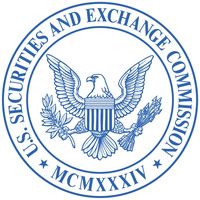SEC's Dismissal of Binance Lawsuit: A New Dawn for Crypto?
June 4, 2025, 4:42 pm

Location: United States, District of Columbia, Washington
Employees: 1001-5000
Founded date: 1934
Total raised: $392.5M
The recent dismissal of the U.S. Securities and Exchange Commission's (SEC) lawsuit against Binance marks a significant shift in the regulatory landscape for cryptocurrencies. This decision, made on May 29, 2025, signals a new chapter in the relationship between regulators and the crypto industry, particularly under the Trump administration.
The SEC's lawsuit against Binance, the world's largest cryptocurrency exchange, was initially filed in June 2023. It accused the exchange of a series of violations, including illegally serving U.S. users, inflating trading volumes, and misusing customer funds. The SEC's aggressive stance represented one of the most intense crackdowns on the crypto sector in U.S. history. However, the recent dismissal has turned the tide.
The dismissal was formalized through a joint stipulation filed in the U.S. District Court for the District of Columbia. This move came after Binance's founder, Changpeng Zhao, had already faced legal challenges, including a $4.3 billion settlement with the U.S. government in 2024. Zhao pleaded guilty to violating U.S. law by failing to implement adequate anti-money laundering measures. Despite stepping down as CEO, he managed to retain much of his wealth.
This dismissal marks the end of one of the last major enforcement actions against Binance. The SEC's decision to drop the case reflects a broader shift in regulatory strategy. Under the new leadership of the SEC, there is a clear pivot from strict enforcement to a more collaborative approach. The agency is now focused on developing clearer rules for the crypto industry, rather than pursuing aggressive litigation.
Commissioner Hester Peirce, a key figure in this regulatory transformation, emphasized the need for clearer guidelines. The SEC's previous approach was characterized by ambiguity, leaving many in the crypto space uncertain about compliance. Peirce's comments suggest that the SEC is now taking a more nuanced view of crypto activities, assessing them on a case-by-case basis.
This shift is not without its critics. While the SEC is easing its grip, Peirce cautioned against interpreting this as a free pass for bad actors. The agency remains vigilant and will continue to enforce rules against fraudulent activities. The balance between fostering innovation and protecting investors is delicate, and regulators are treading carefully.
The implications of this dismissal extend beyond Binance. The SEC's decision is part of a broader trend of regulatory rollback in the crypto space. The agency has already dismantled key rules that previously restricted crypto activities. For instance, it recently scrapped Staff Accounting Bulletin 121, which required banks to treat crypto holdings as liabilities. This change is seen as a boon for the industry, allowing greater flexibility for financial institutions involved in digital assets.
Moreover, the SEC's new stance aligns with the interests of the Trump administration, which has been positioning itself as a pro-crypto ally. The administration's ties to the crypto sector are evident, with several family members involved in various ventures. This relationship raises questions about the motivations behind the regulatory changes and the potential for conflicts of interest.
Binance is not resting on its laurels. The exchange is actively expanding its global footprint, particularly in emerging markets like Pakistan. Recently, Binance secured a $2 billion investment from the Emirati state fund MGX, further solidifying its position in the industry. This investment is entirely in USD1, a stablecoin launched by the Trump family's World Liberty team. Such partnerships illustrate Binance's strategy to align itself with influential players in the crypto space.
The dismissal of the SEC lawsuit also raises questions about the future of crypto regulation in the U.S. As the SEC shifts its focus, other regulatory bodies are likely to follow suit. The Commodity Futures Trading Commission (CFTC) is set to undergo leadership changes, with a new head who has close ties to the crypto industry. This could signal a more favorable regulatory environment for digital assets.
However, the path forward is not without challenges. The crypto market remains volatile, and investor sentiment can shift rapidly. Regulatory clarity is essential for fostering confidence among investors and institutions. The SEC's new approach may encourage innovation, but it must also ensure that adequate protections are in place to prevent fraud and abuse.
In conclusion, the SEC's dismissal of the lawsuit against Binance is a watershed moment for the cryptocurrency industry. It reflects a significant shift in regulatory philosophy, moving from enforcement to engagement. As the landscape evolves, the balance between innovation and regulation will be crucial. The crypto world is watching closely, and the implications of this decision will resonate for years to come. The dawn of a new era in crypto regulation may be upon us, but the journey is just beginning.
The SEC's lawsuit against Binance, the world's largest cryptocurrency exchange, was initially filed in June 2023. It accused the exchange of a series of violations, including illegally serving U.S. users, inflating trading volumes, and misusing customer funds. The SEC's aggressive stance represented one of the most intense crackdowns on the crypto sector in U.S. history. However, the recent dismissal has turned the tide.
The dismissal was formalized through a joint stipulation filed in the U.S. District Court for the District of Columbia. This move came after Binance's founder, Changpeng Zhao, had already faced legal challenges, including a $4.3 billion settlement with the U.S. government in 2024. Zhao pleaded guilty to violating U.S. law by failing to implement adequate anti-money laundering measures. Despite stepping down as CEO, he managed to retain much of his wealth.
This dismissal marks the end of one of the last major enforcement actions against Binance. The SEC's decision to drop the case reflects a broader shift in regulatory strategy. Under the new leadership of the SEC, there is a clear pivot from strict enforcement to a more collaborative approach. The agency is now focused on developing clearer rules for the crypto industry, rather than pursuing aggressive litigation.
Commissioner Hester Peirce, a key figure in this regulatory transformation, emphasized the need for clearer guidelines. The SEC's previous approach was characterized by ambiguity, leaving many in the crypto space uncertain about compliance. Peirce's comments suggest that the SEC is now taking a more nuanced view of crypto activities, assessing them on a case-by-case basis.
This shift is not without its critics. While the SEC is easing its grip, Peirce cautioned against interpreting this as a free pass for bad actors. The agency remains vigilant and will continue to enforce rules against fraudulent activities. The balance between fostering innovation and protecting investors is delicate, and regulators are treading carefully.
The implications of this dismissal extend beyond Binance. The SEC's decision is part of a broader trend of regulatory rollback in the crypto space. The agency has already dismantled key rules that previously restricted crypto activities. For instance, it recently scrapped Staff Accounting Bulletin 121, which required banks to treat crypto holdings as liabilities. This change is seen as a boon for the industry, allowing greater flexibility for financial institutions involved in digital assets.
Moreover, the SEC's new stance aligns with the interests of the Trump administration, which has been positioning itself as a pro-crypto ally. The administration's ties to the crypto sector are evident, with several family members involved in various ventures. This relationship raises questions about the motivations behind the regulatory changes and the potential for conflicts of interest.
Binance is not resting on its laurels. The exchange is actively expanding its global footprint, particularly in emerging markets like Pakistan. Recently, Binance secured a $2 billion investment from the Emirati state fund MGX, further solidifying its position in the industry. This investment is entirely in USD1, a stablecoin launched by the Trump family's World Liberty team. Such partnerships illustrate Binance's strategy to align itself with influential players in the crypto space.
The dismissal of the SEC lawsuit also raises questions about the future of crypto regulation in the U.S. As the SEC shifts its focus, other regulatory bodies are likely to follow suit. The Commodity Futures Trading Commission (CFTC) is set to undergo leadership changes, with a new head who has close ties to the crypto industry. This could signal a more favorable regulatory environment for digital assets.
However, the path forward is not without challenges. The crypto market remains volatile, and investor sentiment can shift rapidly. Regulatory clarity is essential for fostering confidence among investors and institutions. The SEC's new approach may encourage innovation, but it must also ensure that adequate protections are in place to prevent fraud and abuse.
In conclusion, the SEC's dismissal of the lawsuit against Binance is a watershed moment for the cryptocurrency industry. It reflects a significant shift in regulatory philosophy, moving from enforcement to engagement. As the landscape evolves, the balance between innovation and regulation will be crucial. The crypto world is watching closely, and the implications of this decision will resonate for years to come. The dawn of a new era in crypto regulation may be upon us, but the journey is just beginning.
